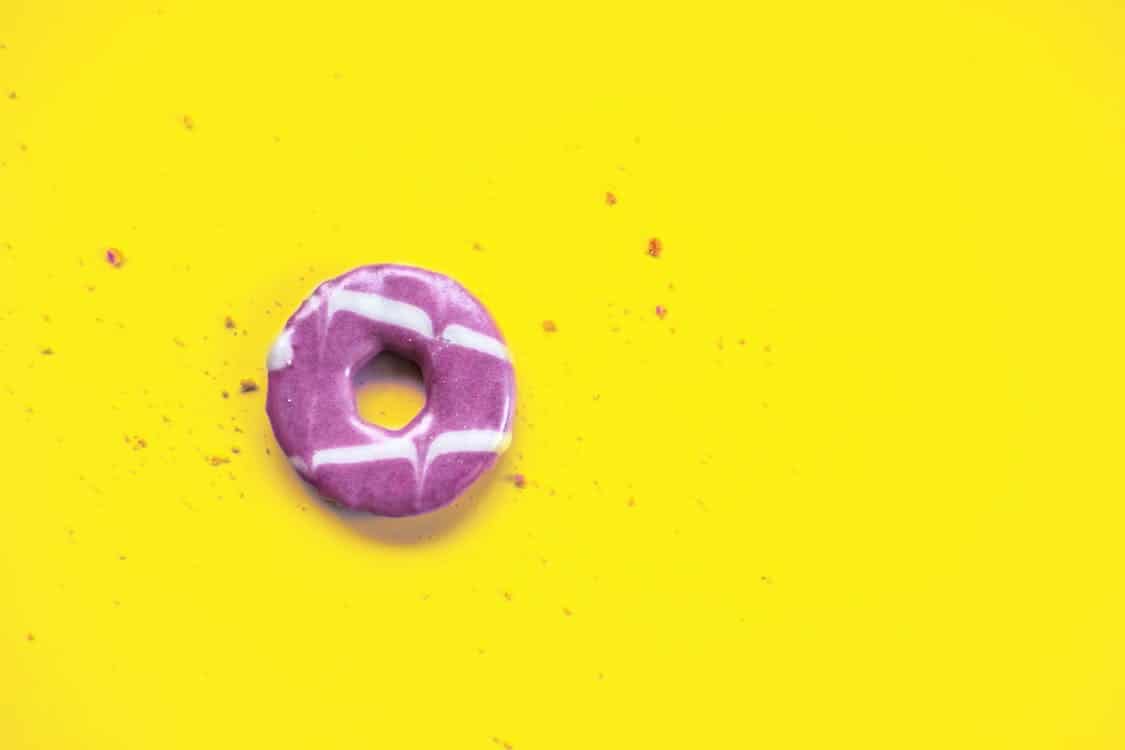Professor Arthur Crisp said it best when he said – “saying you understand anorexia because you’ve dieted a few times is like saying you know what it’s like to be decapitated because you’ve had a paper cut”.
Although I’ve not had the experience of dieting and cannot truly speak to this, I most certainly have had the experience of living with anorexia nervosa (for almost 15 years!) and therefore can speak to the utter all-consuming hell that is the reality of life with anorexia nervosa.
Which is exactly what I’m going to do in this blog.
I’m going to address the main difference between an eating disorder and a diet because interestingly it’s come to my attention that people do get the two mixed up, including professionals who are in positions to treat those with eating disorders and there’s a lot wrong with that…
Why is the distinction between dieting and eating disorders even important to understand?
First and foremost because if you are living with an eating disorder or if you have a loved one living with an eating disorder, I believe knowing they are not the same thing is paramount to successful treatment and a successful recovery.
Knowing the difference between dieting and an eating disorder guides you with where to actually focus your attention and energy and this is valuable beyond measure if your desire is to break free of the eating disorder and live the rest of your life recovered.
Why Dieting Is Not the Same as An Eating Disorder

Recovery from an eating disorder is not the same as stopping a diet.
Essentially you can stop dieting through eating differently, but you cannot overcome anorexia nervosa through eating differently.
It takes much more than changing the way you eat to overcome an eating disorder and the value of knowing this and more importantly using this cannot be underestimated.
It is one of the ultimate keys to reaching full recovery.
At the end of the day, I believe there is one major difference between “dieting” and anorexia nervosa (and any other form of eating disorder) and that is…
Control

The main difference between dieting and anorexia nervosa is where the locus of control lies.
The main difference between dieting and anorexia nervosa (and any other form of eating disorder) is that dieting is a deliberate (conscious) attempt to lose or control your weight, generally for health and aesthetic reasons (the question of the validity of using weight loss/control for health and beauty is a topic for another time and if you want more information on this see my earlier blog “Can You Really Be Healthy At Every Size?”).
On the other hand, anorexia nervosa is an automatic (unconscious) attempt to control life. In the eating disorder health and aesthetics are not a concern.
This isn’t to say that anorexia nervosa cannot begin with a deliberate, conscious attempt to change one’s body with the intention of meeting health and aesthetic goals. In fact, if you look at the statistics diets are quoted as the leading trigger for the development of eating disorders. However, they are just that a “trigger” rather than a “cause” because the causation of an eating disorder is multifaceted and involves a combination of genetics, environmental factors (whatever the catalyst that leads to a calorie deficit. Including but not limited to dieting) and various personality traits (including perfectionistic and harm avoidance tendencies) which place a person at higher risk of developing an eating disorder if all other triggers are in place.
The point I am trying to get across is that anyone can diet. Many people do attempt dieting or deliberate weight loss at some point in their life (the statistics on this are massive – Google it), but the fact of the matter is not all people develop an eating disorder when they do so.
Developing an eating disorder is not an inevitable part of dieting (which isn’t to say dieting per se is useful). It takes having the other factors, most crucially a genetic predisposition to develop an eating disorder (for more information on this see my earlier blog “Anorexia Nervosa is Genetic, So What Do I Do Now?”).
What Does It Mean to Have What You Eat Out of Your Conscious Control?

My definition of an eating disorder is the point at which what a person eats (and a whole bunch of ever changing, ever increasing bizarre coping strategies) is no longer within their conscious control.
The reaction of people’s bodies to calorie restriction (intentional or unintentional it does not matter) who have a genetic predisposition to an eating disorder is simply different to the reaction of the bodies of those who do not have this genetic predisposition.
People who develop eating disorders feel they cannot change even when they realise there’s a problem and even when they wish to change.
One of the largest misconceptions and frustrations I have with eating disorder treatment is that it is hyper focused on education and getting someone to “understand” that what they’re doing isn’t healthy with the logical purpose that this will allow them to respond with an “oh ok, I’ll stop doing that now.” Believe me if that was going to work, we wouldn’t have eating disorders and people certainly wouldn’t die from eating disorders.
I’ve been through it and when I was going through it I knew better than any person I was ever treated by exactly what was wrong with my body down to the individual cellular level.
I knew what to eat.
In fact, I was studying to become a dietitian when I still lived with an eating disorder and all the knowledge in the world didn’t allow me to spontaneously change my behaviours.
This is part of the reason why recovery from an eating disorder is so difficult. What you “know” you should be doing for your health versus what you “feel” is right are in conflict.
You have no other means of existing in the world and alternative ways of thinking, feeling and doing are virtually inconceivable (especially when you are starved and malnourished and don’t have access to a fully functioning brain).
Hence, why recovery is often described as where the torment truly begins and why anorexia nervosa has the highest mortality rate of any mental illness.
During recovery you are fighting within yourself to go against your internal reality.
Your body is literally telling you eating is the wrong or bad thing to do. It feels impossible to eat in a way that is so gut wrenchingly real and I am rapidly losing touch with how to explain because it is so polar to my daily experience of eating now on the other side of recovery.
On the other hand dieting is focused on fighting with yourself to go against your internal reality in the opposite way. That is your body is telling you to eat and you are consciously choosing not to.
This is why dieting is so hard, this is why eating disorder recovery is so hard.
In both instances we are attempting to go against what our bodies are telling us.
The distinction is one is a choice to eat in a particular way and the other is not.
Because dieting exists at a conscious level, we’re able to change our actions based on the feedback we’re getting – i.e. if we’re feeling low on energy, depressed, finding we have a short temper or just aren’t enjoying life as much we can choose to eat more.
In the case of living with an eating disorder if I was low on energy, depressed or downright unable to function I would “blame” it on everything else rather than change a thing I was or wasn’t eating.
When you live with an eating disorder every experience you have comes through the eating disorder filter. To the point where even when I was experiencing severe heart problems I’d still just get up and go for a run. Whereas if I was to experience that today I’d be the first at the doctor’s office, I’d be telling everyone I needed to rest, I’d not even be getting out of bed and I’d certainly be feeding myself well and so on and so forth.
Take Home Summary

An eating disorder is never a choice.
An eating disorder exists at an unconscious level (as does eating in a healthy way because the way we eat is largely an unconscious process).
Because an eating disorder operates at an unconscious level if you wish to recover, cease being at war within yourself and make any true and lasting change this is the level you must make that change at.
Simple (but not necessarily easy).
Clinical hypnotherapy with a licensed health professional is, in my opinion and experience, the most effective and efficient way of updating the unconscious mind (neural rewiring) to be in alignment with your conscious wants and values. It is not the only means but it’s certainly one of the most intentional and therefore often the fastest.
One of the most common experiences of the people I work with is an expression of surprise at just how easily change can be made when their unconscious is working with them instead of against them and this has been my experience both in my recovery from anorexia nervosa and since as I learnt (am still learning) how to do life not just without anorexia nervosa but better and better each day.
And it is my hope for you that you get to experience your own version of this…
With my whole heart I hope you found this information useful and inspiring.

Become Great. Live Great.
Bonnie.



